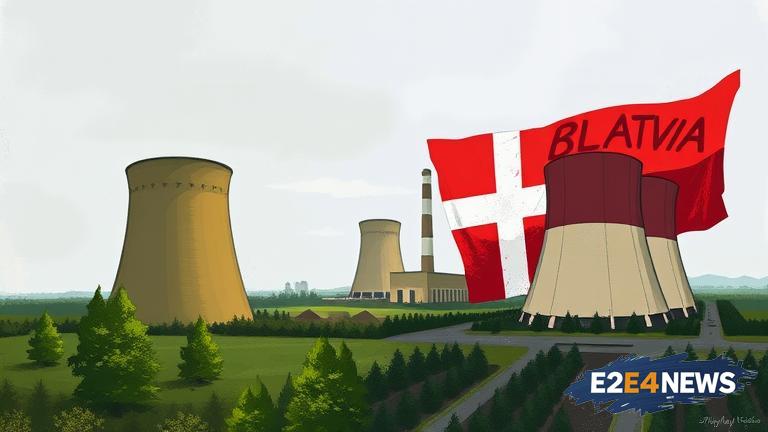The governments of Lithuania and Latvia have come together to voice their opposition to the Belarusian nuclear power plant, which is currently under construction. The plant, located in Ostrovets, Belarus, has been a point of contention between the two countries and Belarus. Lithuania and Latvia have expressed concerns over the potential environmental and safety risks associated with the plant, including the risk of nuclear accidents and the impact on the region’s ecosystem. The two countries have also raised questions about the plant’s compliance with international safety standards. Despite these concerns, Belarus has pushed forward with the construction of the plant, which is expected to be completed in the near future. Lithuania and Latvia have called on the European Union to take action to address their concerns, including imposing sanctions on Belarus. The EU has yet to take a stance on the issue, but has expressed its own concerns over the plant’s safety and environmental impact. The dispute over the nuclear power plant has strained relations between Lithuania, Latvia, and Belarus, with each side accusing the others of politicizing the issue. The plant has also become a point of contention between Russia and the West, with Russia providing financial and technical support for the project. The construction of the plant has been plagued by delays and setbacks, including a series of accidents and incidents that have raised concerns over the safety of the project. Despite these challenges, Belarus has remained committed to completing the plant, which it sees as a key component of its energy strategy. The plant is expected to provide a significant portion of Belarus’ electricity, reducing the country’s dependence on imported energy sources. However, the project has been criticized for its lack of transparency and accountability, with many questioning the true motives behind the plant’s construction. The dispute over the nuclear power plant has also highlighted the need for greater regional cooperation and coordination on energy issues. Lithuania and Latvia have called for the establishment of a regional framework for addressing energy security and safety concerns, which would provide a platform for countries to share best practices and coordinate their efforts. The EU has expressed its support for such a framework, and has offered to provide technical and financial assistance to help establish it. The construction of the nuclear power plant has also raised questions about the role of Russia in the region, and its influence over the energy sector. Russia has been accused of using its energy resources as a tool of political leverage, and of seeking to undermine the independence and sovereignty of its neighbors. The dispute over the nuclear power plant has also highlighted the need for greater investment in renewable energy sources, and for a more diversified energy mix. Lithuania and Latvia have both set ambitious targets for reducing their greenhouse gas emissions and increasing their use of renewable energy, and have called on other countries in the region to follow their lead. The EU has also set a target of reducing its greenhouse gas emissions by at least 55% by 2030, and has called on all member states to increase their use of renewable energy. The construction of the nuclear power plant has been criticized for its potential impact on the environment, including the risk of nuclear accidents and the production of radioactive waste. The plant’s location in a seismically active region has also raised concerns over the risk of earthquakes and other natural disasters. Despite these concerns, Belarus has pushed forward with the construction of the plant, which is expected to be completed in the near future. The dispute over the nuclear power plant has strained relations between Lithuania, Latvia, and Belarus, and has highlighted the need for greater regional cooperation and coordination on energy issues.
